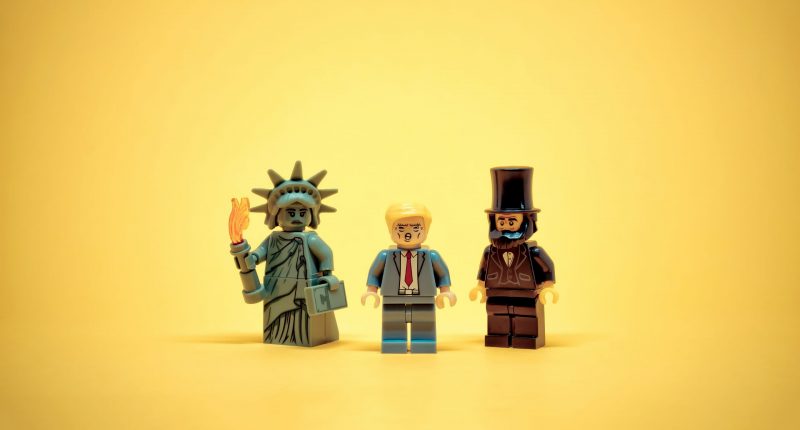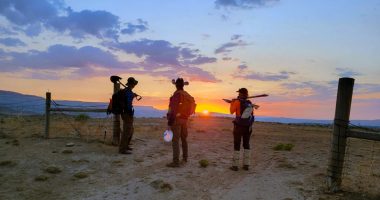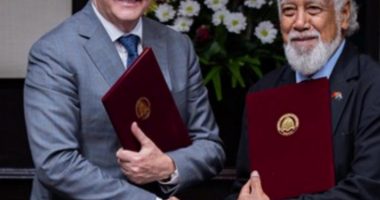When Australian researchers received a questionnaire earlier this month from the U.S. government asking them to clarify whether their project conformed to a range of culture war demands and to delineate their association with a range of ‘enemy’ countries, many were stunned.
Listen to the HotCopper podcast for in-depth discussions and insights on all the biggest headlines from throughout the week. On Spotify, Apple, and more.
The 36-point questionnaire was sent in mid-March to researchers whose projects – across a range of disciplines, including the medical and physical sciences, foreign aid, and defence – involve collaboration with U.S. scholars and institutions.
Several topics broached in the document refer to Donald Trump’s broad policy of pushing back against what he refers to as ‘woke ideology’ – as manifested in his executive orders recognising only two genders, and banning programs and grants connected to DEI (diversity, equity and inclusion).
To wit, the questionnaire asked whether the target research related to DEI, if it complied with Trump’s two-gender policy, and whether its participants were receiving funding from Russia, Cuba, China, or Iran.
‘Unprecedented’ intervention into Australian research
While scholars were often asked to explain their research, especially in connection with funding, this new line of questioning hasn’t been broached before – and certainly not in this way, University of Sydney international relations expert Dr Stuart Rollo told HotCopper after the questionnaire was sent out.
“The questionnaire is totally unprecedented, as far as I am aware,” he explained.
“As part of the process of applying for grants from American government [and other] institutions, applicants will often be asked to describe how their project advances gender equity, principles of environmental sustainability, and things of that nature.”
“But,” he continued, “I have never seen a retroactive questionnaire with such directly politicised conditions applied broadly across institutions.”
While funding was sometimes restricted for projects involving partners from countries like China, Iran, or Russia, Mr Rollo explained, this questionnaire’s direct reference was quite unusual. “Nothing of such a sweeping and immediate nature” has been seen before.
Given the United States is Australia’s biggest research partner – with our universities receiving $400 million in funding from the U.S. government in 2024 – it is important that we figure out where the Trump administration is going with this, and how Australian institutions should position themselves.
Trump’s war against ‘elite institutions’
While the President’s culture war rhetoric is not new, nor unexpected, Dr Rollo says it’s important to remember much of the sentiment underpinning it was supported by people both in the States and Australia.
“The reality is many regular people in Australia and the States do see universities and other ‘elite’ institutions as embodying a sort of vanguard progressive politics that they feel is out of step with the values of society more broadly,” he said.
“The Trump administration is using this sentiment to push a much more radical policy.”
More market news
Never-ending: And just like that, Trump’s tariffs are back causing more market chaos
Meet GeoGeorge: The HotCopper poster so accurate he got hired as an analyst
The starting point of all this, he added, was the belief – among Trump and loyalists such as Steve Bannon and Elon Musk – that universities, media, and the public service are parts of a “permanent bureaucracy” (or “deep state”) influencing how societies develop, outside of simple electoral politics.
“DOGE, cuts to foreign aid, countering ‘woke’ education etcetera is not simply about prosecuting a conservative vs progressive culture war it is about the executive branch of the US government waging all-out war on a range of other institutions of power in our society that tend to balance executive power out,” Dr Rollo said.
He added: “This extends to the judiciary and many other fields as well.”
What this means for the future of international engagement
The questionnaire also says something about how Trump and his gov’t are planning to interact with the rest of the world and its institutions: A tendency on display during his tumultuous meeting with Ukrainian President Volodymyr Zelensky and in the administration’s proposal to secure critical minerals in that country.
“The Trump coalition has a radical view for the future of the United States and the structure of the global order,” Dr Rollo said.
“It’s about moving away from a complex system of institutions and alliances that operate under American leadership – sometimes seen as the ‘American Empire’ a.k.a. the ‘rules-based order’) towards a system of exploitative hegemony, where the U.S. relies much more on military strength, coercion, and other ‘sticks’ rather than ‘carrots’ to ensure the compliance of weaker states and secure as much of the global economic pie for itself as possible.”
When it came to initiatives such as this strange new questionnaire – and the potential threat to research funding which it represents – Dr Rollo said it was unlikely to benefit the United States in the long term.
“As far as funding to Australian institutions goes, the Trump administration seems to have a very unsophisticated understanding of American soft power,” he said.
‘They are doing a great deal of damage in a very short time to a set of arrangements that, whether you agree with them in terms of cultural values, serve to promote American national interests and influence here and elsewhere around the world.”
Depending on the discipline, there were swathes of academic research that would likely be impacted by Trump’s approach. “It is likely to reshape research in the social and political sciences a fair bit, perhaps public health too, but not a great deal in the hard sciences, computing etcetera,” Dr Rollo added.
Join the discussion: See what’s trending right now on Australia’s largest stock forum and be part of the conversations that move the markets.
The material provided in this article is for information only and should not be treated as investment advice. Viewers are encouraged to conduct their own research and consult with a certified financial advisor before making any investment decisions. For full disclaimer information, please click here.








